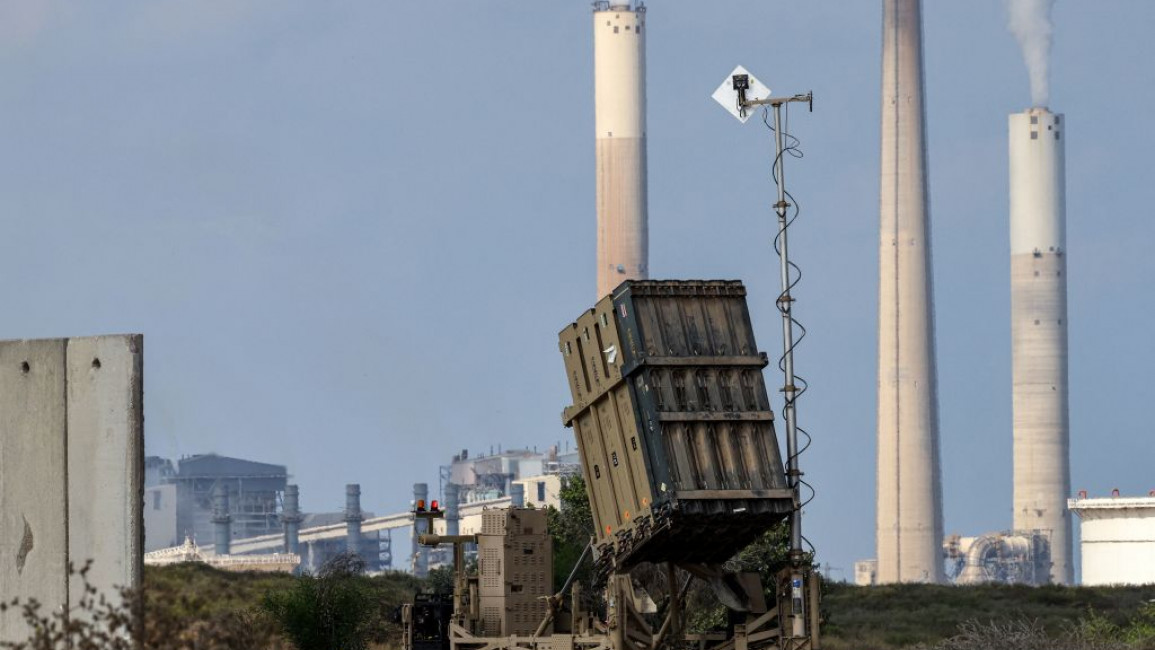Israel prepares for power grid attacks, Burkan missiles in possible war with Hezbollah
Israel's home front is preparing for a possible escalation in its conflict with Lebanon's militant group Hezbollah, fearing attacks on the power grid and the deployment of devastating "Volcano" (Iranian-made Burkan) missiles.
According to Nayef Zidani, a reporter with The New Arab's Arabic service Al-Araby Al-Jadeed, Hezbollah could target Israel's electricity infrastructure in an upcoming war, causing prolonged outages and impacting hospitals.
Israel has held unpublicised emergency meetings recently to survey contingency plans that include backup generators, according to the report, particularly in communities near the border with Lebanon.
Discussions in Israeli government meetings tackled evacuation plans for respirator-dependent patients and communication strategies if internet and phone networks fail, including deploying SMS messaging over internet-based alerts.
Israel has yet to make these concerns public, according to the reporter, fearing causing panic and tipping off Hezbollah.
What is the Burkan missile and what is its range?
Burkan-1, first used in 2016, is based on the Soviet-era Scud-B design and has an estimated range of 800 kilometers. Burkan-2, introduced in 2017, comes in two variants: Burkan-2H and Burkan-2B. The Burkan-2H boasts a longer range of approximately 950 kilometers,. Both variants show improved accuracy compared to Burkan-1.
Hezbollah has a sophisticated arsenal of these precision-guided munitions (PGMs), raising concerns of a potentially devastating conflict with Israel, according to a report in Lawfare, a national security blog.
Hezbollah's rockets, missiles, and drones are capable of striking targets with high accuracy. While some weapons are obtained from Iran, others are developed domestically by the group.
According to Lawfare, Israeli officials fear attacks on critical infrastructure like power grids and communication networks, which could cripple the country. Targeting military bases and sensitive facilities is also considered a possibility.
Israel has been bolstering its air defence systems, including the Iron Dome designed to intercept rockets and missiles. However, there is uncertainty about their effectiveness against Hezbollah's most advanced PGMs.
Hezbollah and Israel have been exchanging near-daily fire across the border since the Israel-Hamas war broke out on October 7.
The United Nations secretary-general's spokesman called on Wednesday for a halt to dangerous "recent escalation", which also sparked concern from the United States.
Wednesday was the bloodiest day in more than four months of cross-border exchanges, with 10 civilians and five Hezbollah members including a commander killed.
Hezbollah said it retaliated on Thursday by firing dozens of rockets into northern Israel.
The Israeli army said it carried out Wednesday's strikes after rocket fire from Lebanon killed a soldier.
The cross-border exchanges have killed at least 268 people on the Lebanese side, most of them Hezbollah fighters but also 40 civilians.
On the Israeli side, 10 soldiers and six civilians have been killed, according to the Israeli army.


![Minnesota Tim Walz is working to court Muslim voters. [Getty]](/sites/default/files/styles/image_684x385/public/2169747529.jpeg?h=a5f2f23a&itok=b63Wif2V)




![Debris near Rafic Hariri International Airport [Getty]](/sites/default/files/styles/image_330x185/public/2176162423.jpeg?h=a5f2f23a&itok=MCSK9mkM)
![An Israeli air strike on Jabalia killed teenage journalist Hassan Hamad [Screengrab/X]](/sites/default/files/styles/image_212x120/public/2024-10/hassan%20hamad1.jpg?h=c12e0b96&itok=KstD_5xk)
